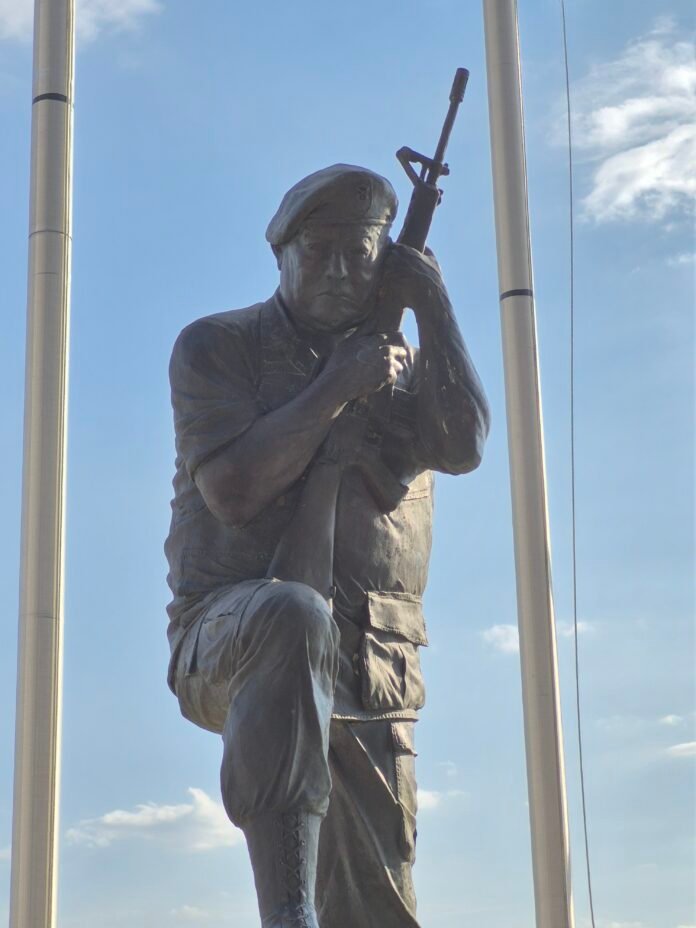By Pat Trevino | August 5, 2025
Who is Roy Perez Benavidez
Roy P. Benavidez was born on August 5, 1935, in Lindenau near Cuero, Texas, to a Mexican American father, Salvador Benavidez Jr., and a Yaqui Native American mother, Teresa Perez. Orphaned by the age of seven, he was raised in El Campo by extended family and worked from a young age to support them. He enlisted in the Texas National Guard at 17 and later joined the U.S. Army, serving in Korea, Germany, and Vietnam.
He was a Green Beret with the elite 5th Special Forces Group, Benavidez became a legend for his actions on May 2, 1968, during a covert rescue mission in Cambodia. He sustained 37 separate wounds he was shot, stabbed, and hit by grenade shrapnel—he saved at least eight comrades in a six-hour battle. His heroism earned him the Medal of Honor, presented by President Ronald Reagan in 1981. (Intro -by COC)
This past Tuesday, August 5th beneath the bronze gaze of MSGT Roy P. Benavidez’s statue at the City of Cuero’s Memorial Park, a solemn crowd gathered, family, several out-of-town guests, veterans, local VFW members, the local American Legion, and various community members united in reverence to honor what would have been Roy Benavidez 90th birthday.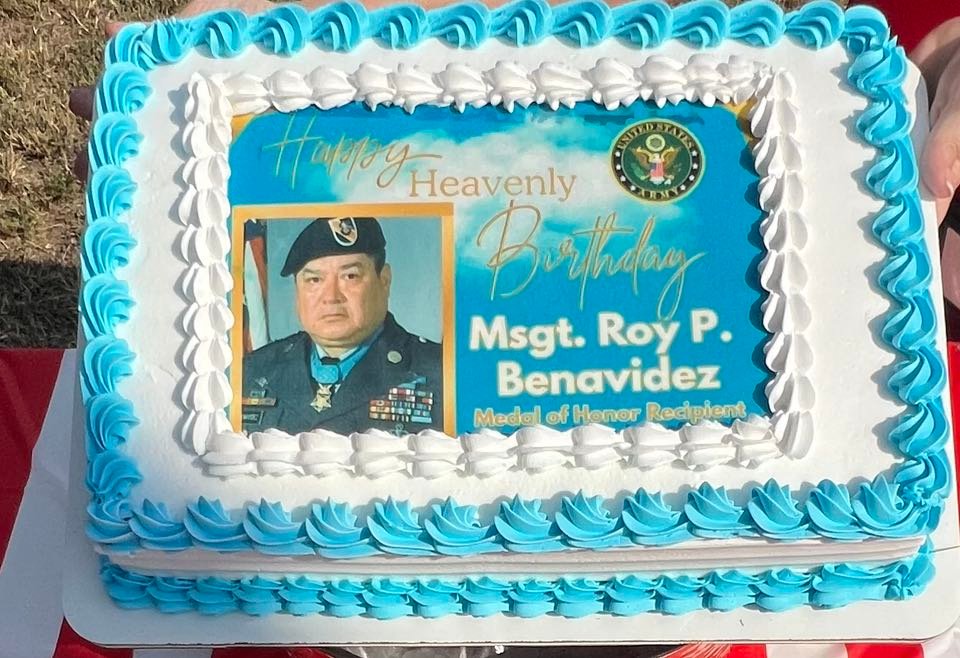
Cuero Mayor Emil Garza delivered a brief but heartfelt speech, officially proclaiming August 5th as “Roy P. Benavidez Day”—a gesture that affirmed the town’s enduring pride in its native son. During the ceremony, Benavidez’s daughters, Yvette Benavidez Garcia and Denise Benavidez Prochazka of El Campo, were visibly moved by the mayor’s proclamation and the presentation of a U.S. ceremonial flag, gifted on behalf of Congressman Cloud’s office.
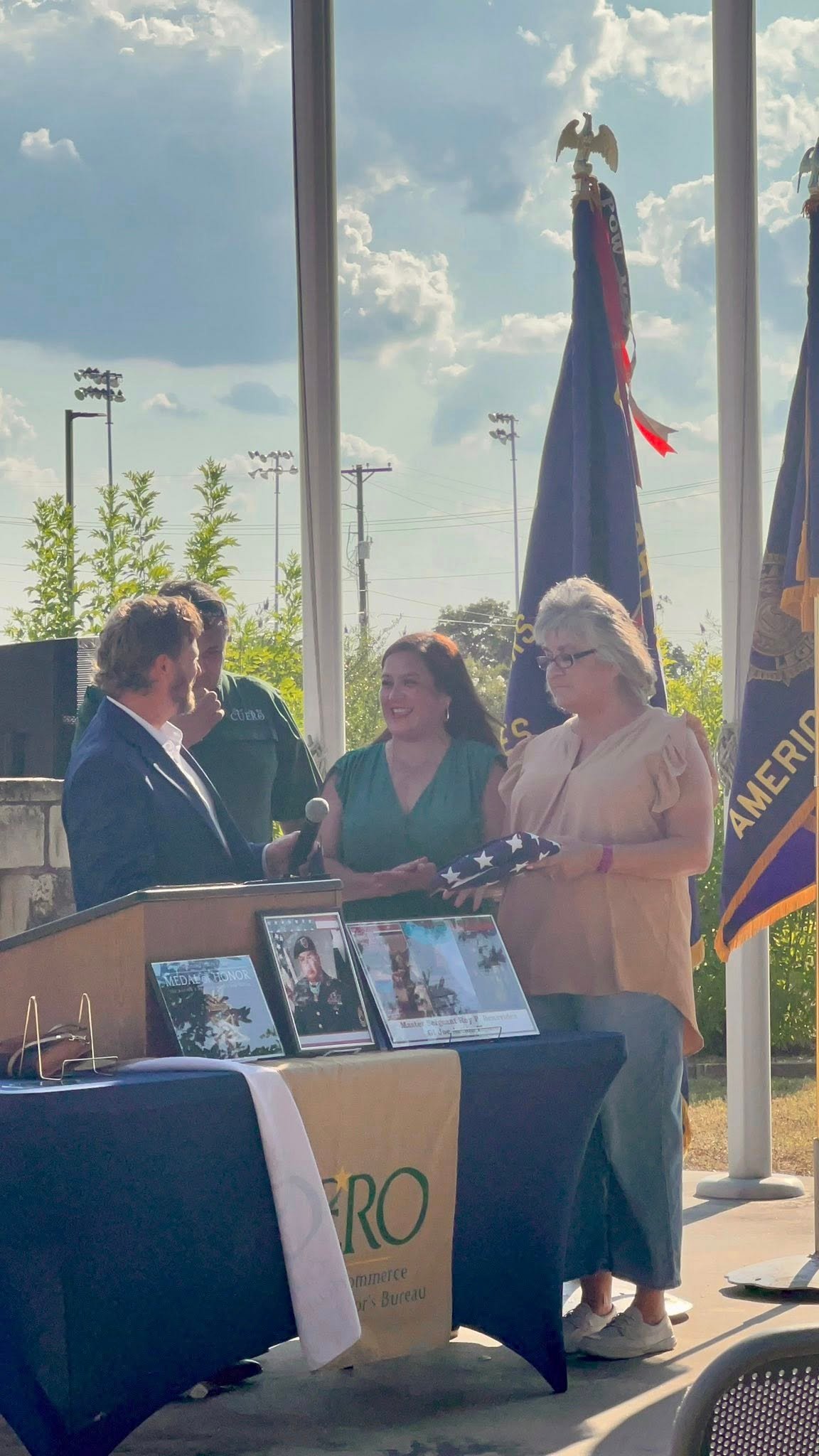
His daughter, Yvette Benavidez Garcia, shared this about her father, “My father always boasted of Cuero. In many of his speeches, he would talk about his hometown of Cuero. How it was the turkey capital of the World. This was home, he attended school here, went to church here, and was even an altar boy. This is where his parents and little sister are buried.” Cuero was home.
As the ceremony concluded, reflections from fellow veterans underscored Benavidez’s enduring impact. Such as retired U.S. Navy Commander James De Los Santos—a Cuero native now living in San Antonio. He had this to say about Benavidez,
“Master Sergeant Roy Benavidez’s legacy represents the highest ideals of courage, sacrifice, and perseverance,” he said. “What moves me most is that after his military career, he devoted himself to empowering others, especially young people and veterans. His message was clear: education, discipline, and purpose are the keys to success.”
De Los Santos reflected not only on Benavidez’s battlefield heroism, but also on his strength and courage in the face of adversity—losing his parents at a young age, confronting discrimination, and defying medical odds after being told he’d never walk again.
“Roy Benavidez’s story reminds me that true heroism isn’t just measured by battlefield valor; it’s measured by how you rise after you’ve been knocked down and how you choose to serve others when the spotlight fades.”
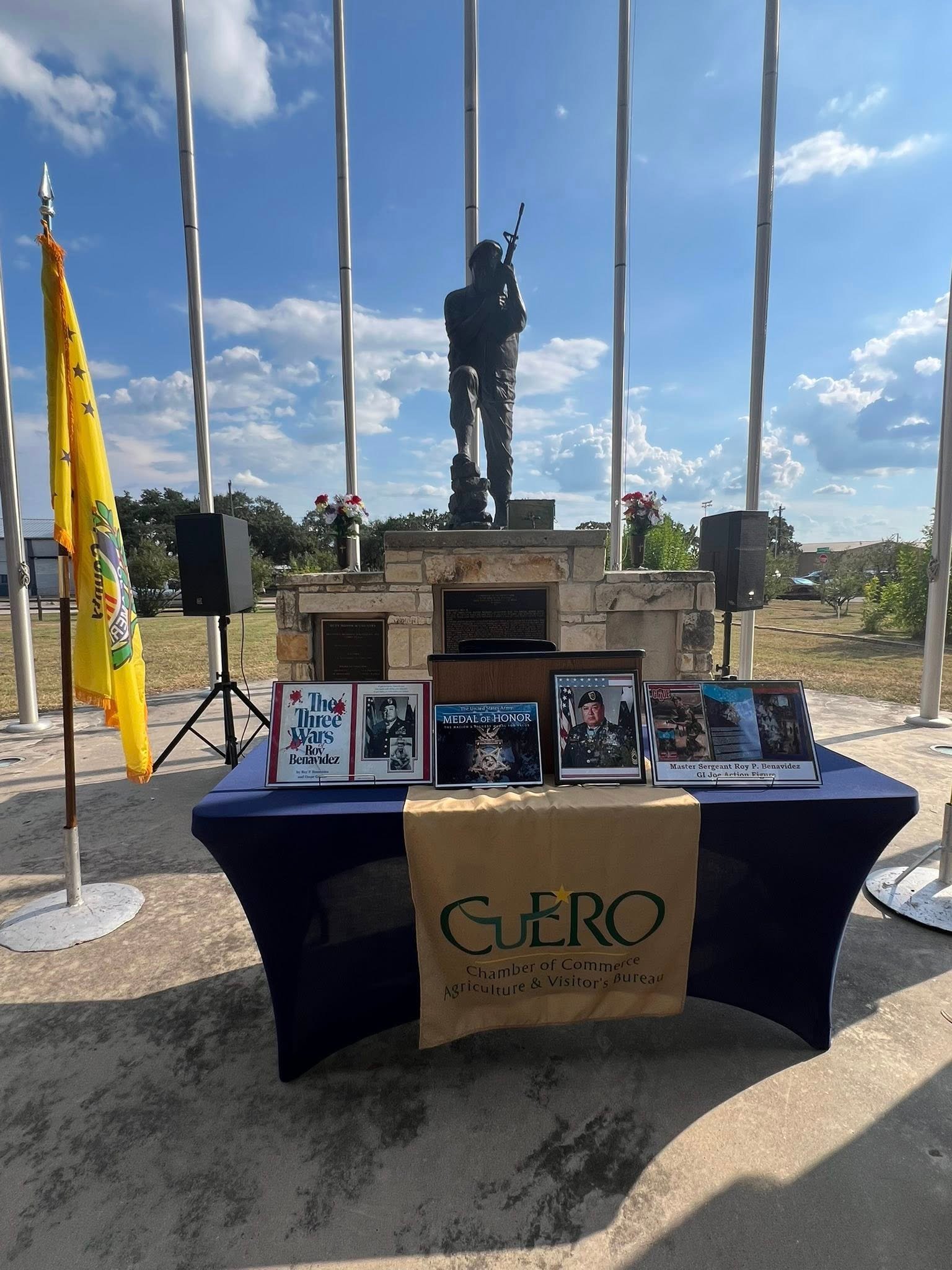
On the Day he became a legend
By May 1968, the Vietnam War had reached a fever pitch. Roy Benavidez—still recovering from a near-paralyzing injury that doctors said would end his military career—was about to face the ultimate test.
On the morning of May 2, 1968, in the dense jungle just across the border in Cambodia, a 12-man Special Forces team—many of them close friends of Roy Benavidez—was ambushed by North Vietnamese forces. Though stationed in Vietnam, Benavidez boarded a helicopter and entered the forbidden zone to save them armed with only a bowie knife.
What followed was six hours of hell. He charged through a hail of bullets to reach the wounded, taking bullets to the leg, face, and head. He dragged half the team to safety, retrieved classified documents from the fallen team leader, and was hit again—this time a grenade blast to the abdomen that left his intestines exposed. One account even describes him holding his guts in with one hand while firing his weapon with the other.
When the rescue helicopter crashed and the pilot was killed, Benavidez helped the survivors who were badly wounded, got everyone into a safe position, formed a defensive perimeter, directing air support until the final helicopter arrived.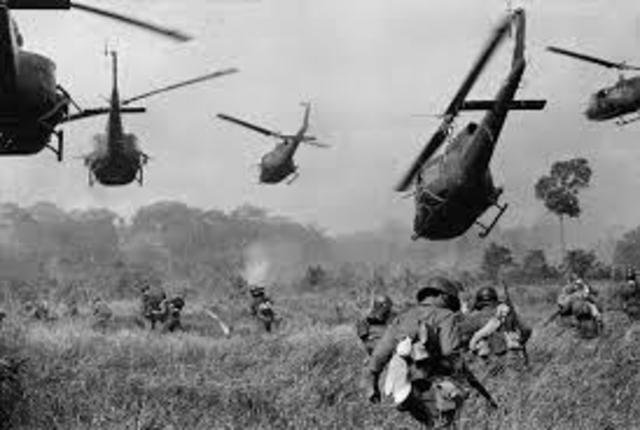
He was shot again in the thigh. By now, Benavidez’s face was bloodied and swollen, his vision nearly blinded by the wounds. And yet, he kept going. As he carried a wounded comrade to a second helicopter, an enemy soldier charged and struck him with the butt of a rifle, then raised a bayonet to finish the job. Benavidez, acting instinctively, grabbed the blade with his bare hands, pulled it inward, and killed the attacker. The deliberate move slashed open his palm and drove the bayonet into his own arm.
When he was finally evacuated, Benavidez heard the triage doctor declare him dead. He tried to speak, to move—but his body was paralyzed, and unresponsive. He summoned every ounce of strength to gather saliva in his mouth and spit. That single act—defiant, primal, determined—saved Roy Benavidez.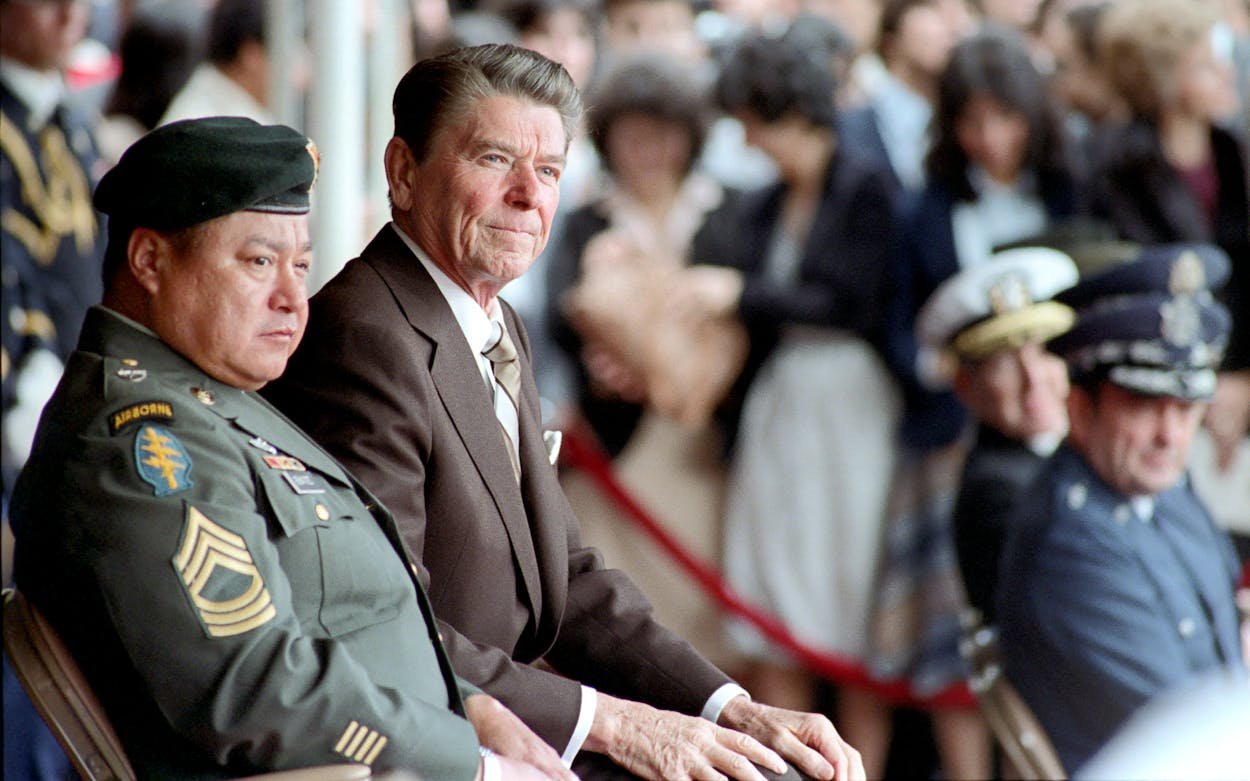
Benavidez’s courage was not only personal—it was ancestral. His Yaqui lineage carries a legacy of resistance that echoes through time. I was reminded of the ancient archives I encountered during genealogical research: stories of the Yaqui Nation, fierce warriors whose defiance shaped history. For nearly 400 years, they resisted colonial rule, never surrendering, never signing a peace treaty. Their homeland became a fortress, their culture a shield, and their spirit—unbreakable.
Is it any wonder, then, that it would be a Yaqui who spat in the face of death, defied the odds, and reminded the world that surrender was never written into his bloodline?
For you there will be no sun, no death, no pain, no heat, no thirst, no hunger, no rain, no air, no illness, no family. Nothing will cause you fear. Everything has ended for you, except one thing: TO DO YOUR DUTY…
Before going into battle, a Yaqui soldier would commit to memory—and recite aloud—this sacred oath:
“Para ti no habrá sol, para ti no habrá muerte, para ti no habrá dolor, para ti no habrá calor, ni sed, ni hambre, ni lluvia, ni aire, ni enfermedad, ni familia. Nada te causará temor, todo ha terminado para ti, excepto una cosa:
Cumplir Con Tu Deber!
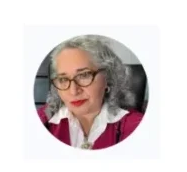
Pat Trevino Published Author, Photographer, Genealogist, and Blog Writer
CORRECTION: Cumplir Con Tu Deber! (8/8/2025)


